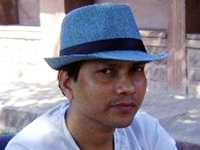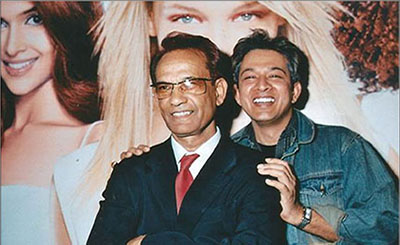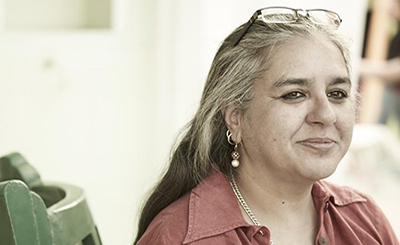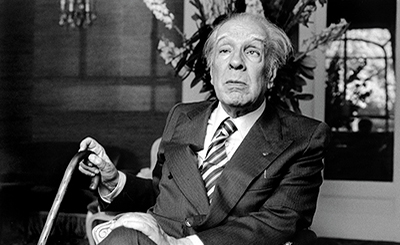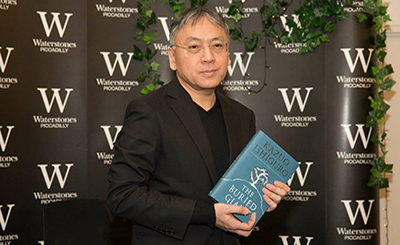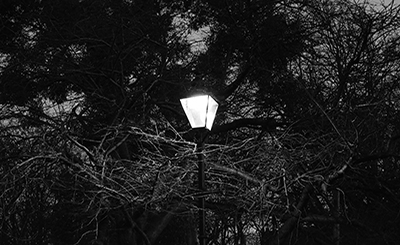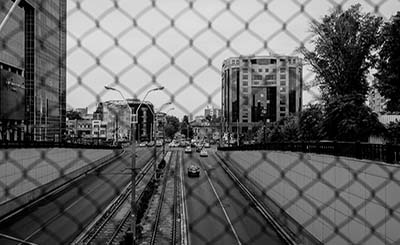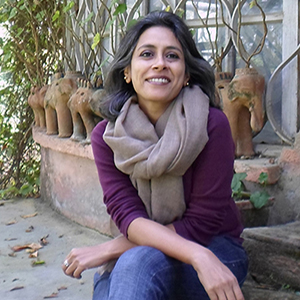
Anuradha Roy. Photo: Sheela Roy
There is something deeply immersive about Anuradha Roy’s novels. They engage you at many levels — the power of the prose, style, structure, detailing. Among India’s best-known writers writing in English today, Roy’s novels leave you with a lot to ponder over. They stay with you long after you’ve read them. Her stories have the rare quality of leaping out of the pages. Her characters yearn for “different reality”. Each of them, in different ways, is “in search of freedom from fear or family or pain or rejection.”
Roy’s first novel, An Atlas of Impossible Longing, has been translated into over 15 languages. Her second novel, The Folded Earth, was published in 2011 in the UK and India. It won the The Economist Crossword Prize and was longlisted for the Man Asia Prize.
Her third and latest novel, Sleeping On Jupiter, is set in the fictional temple town of Jarmuli and delves into the gruesome reality of child abuse. With a narrative that delicately stitches together interwoven voices, Roy creates a rich tapestry of overlapping lives during the course of five days. As the realities of an interesting cast of characters overlap, the story of innocence snatched, realities altered and desire thwarted unfolds in a vortex of unexpected journeys and destinations, travails and encounters. Sleeping On Jupiter was longlisted for the 2015 Man Booker Prize. It won the DSC Prize for South Asian Literature.
Educated in Hyderabad, Calcutta and Cambridge, Roy works as a designer at Permanent Black, an independent publishing house, of which she is the co-founder. She lives mainly in Ranikhet (India) with her husband Rukun Advani and their two dogs.
When she is not writing or designing, she’s a photographer, she paints (“on furniture, on kettles, on plates and bowls”) and does pottery, getting herself immersed in the “all-consuming regime of preparing clay, making glazes, throwing pots and finishing them”.
NAWAID ANJUM: Your novels — An Atlas of Impossible Longing, The Folded Earth and, now, Sleeping on Jupiter — may traverse different terrains, but all three of them stand out for their remarkable sensitivity. You seem to have tremendous empathy for your characters. How deeply do you inhabit the space of your characters while writing?
ANURADHA ROY: Is it like this for other people who write fiction? I don’t know. But the characters of my book carry on living in my head years after I’ve finished a book. It’s as if they are people I know and they are living the rest of their lives somewhere else, like friends who have gone away, but are not out of contact. The involvement with them is extremely intense while the writing is in progress, but it’s not as if they arrive easily or fully formed. After the book is written, I feel as if they were born the way they are in the book — and it just took me a long time and lot of effort to draw them out — but that isn’t true at all. They come to be who they are as you discover draft after draft what is ringing true or what is not alive on the page. They change as I write.
NAWAID ANJUM: What was the genesis of Sleeping on Jupiter? Like your previous two novels, it’s deeply affecting, deeply haunting and deeply lyrical. How did you zero in on Nomi? And the other sub-plots that seem to fit so well in the overarching themes of the novel?
ANURADHA ROY: Sleeping on Jupiter started as a long short story with three old friends going on a part-pilgrimage, part holiday. I was interested at that time in friendship “and the intensive togetherness of holidays can really test friendships. In that story, the women glimpse a girl on the beach whom they are judgemental about, without knowing her. I found after finishing the story that I kept thinking about that girl. Who was she really? Why was she there? And that was how Nomi came to be. Badal, too, was in that short story — again as a character whom the women encounter — and I felt I wanted to get closer to him too, think about him more, follow his life.
NAWAID ANJUM: Do characters wield enough control and power to change a writer? Do you ever end up writing something that the characters seem to urge you to? How often are you led by your own characters’ voices, going in the directions they choose to take you in?
ANURADHA ROY: There were several times during the writing of Sleeping on Jupiter that I wanted to give Nomi a different past — change everything in the narrative altogether — because I found it extremely difficult and painful to write about her. Also, with Badal, occasionally I wondered: could he love a woman instead? But neither of these options rang true. The characters don’t dictate anything, but once they are compelling and real to me, it is either going to be a different book altogether or the narrative follows their logic. There are only rare, longed-for spells in the writing where the book feels as if it is writing itself and the words are coming from a place you can’t identify — or tap again. Mostly, writing characters is a matter of work and deliberate thinking of the things they might say or do. The point is to do it so that the effort is not visible in the book and it feels as if the character is leading the narrative.
NAWAID ANJUM: In Sleeping on Jupiter, the narrative keeps going back and forth in time. How important is the structure? Do you tend to fret over it too much?
ANURADHA ROY: Yes, I do fret over it a lot. The structure and voice are crucial. But discovering the right structure for each book involves indirection and discarding. With Sleeping on Jupiter, the structure took a lot of doing because of the multiple stories and shifts in time. The characters had to overlap and yet remain distinct — they are like planets of different orbits that come close and then drift away again. There were also the shifts in time and perspective that had to be done without it turning mechanical or predictable. Plus, the present day narrative was to take place over just five days. I was half-dead by the time I felt satisfied with the structure.
NAWAID ANJUM: How difficult is it to get the right narrative cadence? How do you achieve the narrative rhythms and tension?
ANURADHA ROY: If you mean the prose, that is entirely by ear. I write something, I read it back the next day and most of the false notes leap out at me and then it’s back to the beginning. If you mean the pacing of a book: I think it needs a lot more nerve and conviction to write a slow, calm narrative than one where something keeps happening. If you read something like Per Petterson’s Out Stealing Horses, for example, or Carson McCullers’ The Heart is a Lonely Hunter or any of Alice Munro’s stories or Kawabata’s Sound of the Mountain: an infinity of seemingly small things build up into a web of meaning. They are beautifully paced, profound, and interesting on every page without any apparent effort to seduce. With Sleeping on Jupiter, I wanted to preserve the elusiveness and concentrated power of the short story in a novel.
NAWAID ANJUM: The preservation of the concentrated power of the short story can be tremendously challenging. It has its pitfalls and many novelists with similar aims tend to falter. You, however, do it all in deeply evocative prose. How do you plan the details? What do you have to dwell on to build the several rich little fragments in your novels?
ANURADHA ROY: I make lots of notes. I have notebooks and notebooks. I jot down things I overhear. I feel wildly thwarted when I visit a non-English speaking foreign country and can’t eavesdrop. And there are odd little things, details of people, places, conversations, that lodge themselves in my head that pop out and come in handy when I’m writing. As for the prose, I read a lot, all sorts of stuff and I suppose it seeps in and influences the way I write. I think it’s like music: you are born with some ability and then you just need to listen and listen to music and become more musical.
NAWAID ANJUM: In Sleeping on Jupiter, when you set out to write, were you conscious of its various threads — the effect of religion on people’s lives, its many oppressions and misuse and the intrinsic violence of love?
ANURADHA ROY: Not when I set out to write it, no: I mean I don’t settle on certain themes before starting a book. But yes, that’s the way it went, and in the end, the place of faith in people’s lives is quite central to the book. There are so many ways in which the lives of the people in the book are marked by religion, either as trauma or as a source of strength or just indifference. And, yes, the violence of love too. I found it very painful to write the passage where Badal has to face the anguish of Raghu’s rejection.
NAWAID ANJUM: Was it crucial to contrast the dissonance of your characters against the relative serenity of the temple town, a serenity that is only on the surface?
ANURADHA ROY: I don’t think of temple towns as serene, far from it — but I know what you mean. I’m reading Dostoevsky’s Idiot right now and am reading the section where the characters are in a country cottage in rural Russia, a place called Pavlovsk. Birds, trees, calm and peace — the works — but the passions and hatreds concentrated in that cottage set the pages on fire. In a sense, in The Idiot, the countryside offers the silence these passions can rage in more vividly and audibly. You see this in many of Chekhov’s stories too. I find it quite useful to write with a “small” setting for this reason.
NAWAID ANJUM: The idea of escape is central to the narrative. What kind of escape do you think your characters are looking for?
ANURADHA ROY: That’s quite true but it is as much search as escape. Each of them, in different ways, is in search of freedom — from fear or from family or from pain and rejection. What they are looking for is a different reality.
NAWAID ANJUM: How crucial was the choice of locating Jarmuli by the sea? How important is the choice of places to you?
ANURADHA ROY: It’s vital. Until I know where the novel is going to happen, it doesn’t. After The Folded Earth, I had felt I had to be by the sea for the next novel. I’ve no idea why I resisted that and instead wrote a chunk of a novel, now discarded, which was set in north India. It was dead on arrival, I could see that — though not only because of the place. I need to be able to see, smell, hear the place even if it is an imagined place.
NAWAID ANJUM: With a disturbing theme as child abuse, it was easy to have got carried away. But while writing the scenes you exude the same self-restraint, the same economy of prose as we saw in your other two novels.
ANURADHA ROY: There is that “All my words come back to me with shades of mediocrity” thing that happens somewhere during the repeated re-reading and rewriting and then editing yourself is not difficult. There is a point at which I get ruthless and discard so much that I have to be told not to be stupid. I also give my manuscript to a few people whose judgement I trust and when they tell me something is not working I pay attention.

Anuradha Roy with husband Rukun Advani and their dogs. Photo: Manju Arya
NAWAID ANJUM: What do you read when you are working on a novel?
ANURADHA ROY: I read a lot of non-fiction. Especially the books of writers like Ryszard Kapuscinski whose journalism uses many of the tools of fiction in non-fiction. I also read poetry and crime fiction when I am writing. I tend not to read serious fiction because I don’t want to be overpowered — emotionally or stylistically — by a different narrative. One of my great pleasures at the end of every draft is a few months or weeks in which I feel free to write whatever fiction I want to. When writing Sleeping on Jupiter, I read the Bible quite a lot, hoping to imbibe some of the strength and beauty of its prose.
NAWAID ANJUM: Your very first novel, An Atlas of Impossible Longing, put you on the global literary map. How did the novel happen? Was that the story you were carrying with you till you found out how to tell it? How did Mukunda and Bakul come into being?
ANURADHA ROY: I had no idea I was going to write a novel, had no conscious desire to write one. But one day I wrote a whole chunk about Bakul and her mother without knowing who either of them were. This was one of those magical chunks that happened more or less on its own. I was writing it so fast, in a kind of scrawl into a notebook, I hardly had time to think consciously. After that I put it away for several months and when it didn’t disappear from my head I started structuring a novel that would find a place for them. Later I thought it had something to do with a semi-autobiographical essay I had written about a year earlier, called Cooking Women, which was about a widow in a joint family household in Calcutta. I lived in a joint family for some of my childhood and I suppose that fed into the narrative. In that sense maybe I had been carrying it around in me for a while, but not otherwise.
NAWAID ANJUM: Ranikhet, where you live, bristles with life in The Folded Earth. Was it relatively easier to write?
ANURADHA ROY: I began The Folded Earth well before An Atlas of Impossible Longing was published. This time I knew from the start it would be a novel: it was easier only in the sense that I was prepared for the long haul and the dead ends, the miserable days when not a word comes out right: all of that. I knew I had to plan it out, write a rough draft to get the whole thing clear in my head and spare myself many wasted months of work. It did make a difference that I live in Ranikhet. I drew a lot from my own experience of the place.
NAWAID ANJUM: Many of your characters in The Folded Earth — Maya, Diwan Sahib, Ama — seem to have flesh and blood. Is it because you draw them all from lived and shared experiences?
ANURADHA ROY: Only a few of the characters are actually drawn from life — that is, they started out from people I’ve known — and then of course they invariably change in the writing. Diwan Sahib is the distillation of a few anarchic, deeply knowledgeable, interesting and eccentric old men who were friends and neighbours in Ranikhet. You could set your watch by the hour they settled down with their pre-lunch drink and yet their minds — and tongues — were fantastically sharp. Ama is very like some of the local hill women I know. They graze their cows when I’m out walking and the conversations with them certainly fed into the novel.
NAWAID ANJUM: How do you approach a novel? Do you have a kernel in mind when you set out and work around it? How often does it happen that you don’t know where you’re going and work it out through several drafts?
ANURADHA ROY: It’s a bit of both. I know roughly where I am headed, but I know also there will be many changes of direction along the way. And, yes, there are innumerable drafts.
NAWAID ANJUM: The rich tapestry of the landscapes in your novels is very fascinating. Do you have to work on them a lot?
ANURADHA ROY: It really depends on what I am writing. The Folded Earth was about the natural world and its fragility. It was a very descriptive book with several meditations on landscape. But Sleeping on Jupiter is different: it’s much more urban, despite the presence of the sea.
NAWAID ANJUM: There is a visual quality to your writing. Do you have to visualise it before you write a scene?
ANURADHA ROY: Yes, I have to be able to see every detail of a scene when I am writing it. Every scene plays in my head like a film.
Page
Donate Now
Comments
*Comments will be moderated



